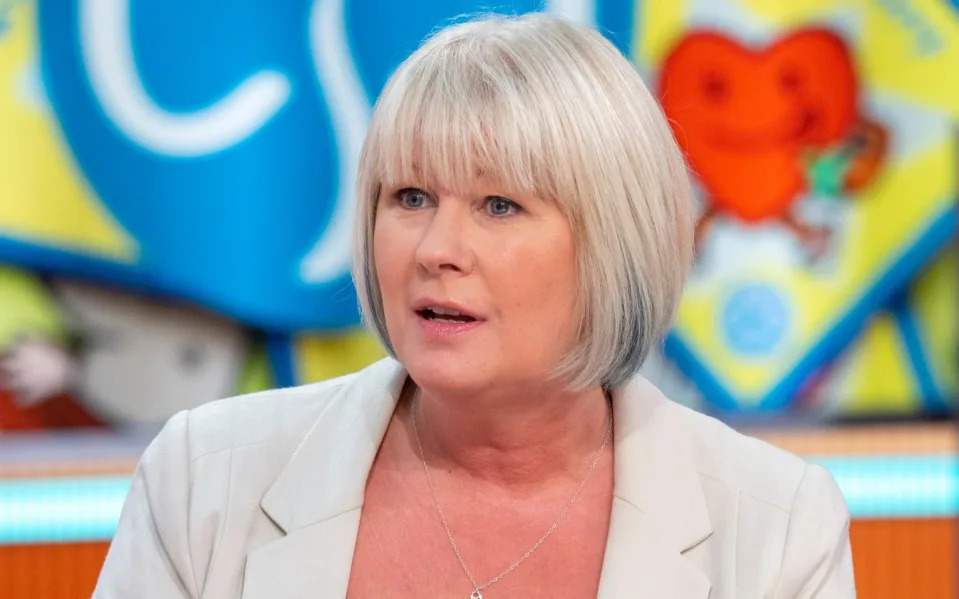Children will only be referred to transgender clinics if their parents agree
Michael Searles
Thu, 7 December 2023

Susie Green, the former chief of the transgender charity Mermaids, bypassed GPs and sent children to the Tavistock’s clinic - Ken McKay/ITV/Shutterstock
Children will only be referred to transgender clinics if their parents agree, under a planned overhaul of NHS rules.
The health service is set to clamp down on the lax referral processes that have led to incidents such as Susie Green, the former chief of the transgender charity Mermaids, bypassing GPs and sending children to the Tavistock’s controversial clinic.
Teachers, social workers and GPs have all historically been able to send children to the Tavistock without having to gain parental consent.
Under the new plans, outlined in a public consultation document published on Thursday night, children will only be referred to one of the new gender services if they, their parents and a specialist agree that it is in the best interests of the child, in two separate reviews.
It is the latest in a series of proposals to overhaul the children’s services following a damning review by Dr Hilary Cass, the former president of the Royal College of Paediatrics and Child Health.
Dr Cass’s interim report found that the approach under the Tavistock, which was the sole NHS gender clinic for children, put its patients “at considerable risk” of poor mental health and was not “a safe or viable long-term option”.
Experts have criticised the clinic’s “affirmative” approach to treating children with supposed gender dysphoria, where they feel that they are not the same sex as they were born, and a lack of exploring alternative health conditions before putting children on puberty blockers.
The new documents confirmed that the Tavistock’s gender identity development service would be permanently closed from March 31 – a year later than initially planned.
It will be replaced by regional centres, with sites in London and Manchester set to be the first two to open in the spring.
The NHS has also committed to limiting the use of puberty blockers to a clinical trial, although more than 100 children have been put on the treatment in the almost 18 months since that announcement.

The proposals follow a review by Dr Hilary Cass, the former president of the Royal College of Paediatrics and Child Health
Under a new “referral consultation service”, children who may be sent on to a gender service, will have a “consultation, advice and liaison meeting”.
This will involve parents, clinicians and the child in question agreeing on the best path forward, deciding whether or not that involves a referral to a children’s gender service, and then creating a care plan with other services that can be accessed while on the waiting list.
The consultation document said these steps were necessary “in view of the relatively high number of children and young people who present to gender incongruence services with other complex needs, such as mental health needs, neurodiversity or autism”.
It added that it would also help address concerns raised by the Care Quality Commission “about the lack of support or risk assessment” for children on a waiting list.
Previously, children did not need parental consent to be referred to the Tavistock, and in some cases it was not needed to start puberty blocker treatment under Gillick competence rules, which allow clinicians to determine if a child is mature enough to make a decision themselves.
Despite plans to tighten the referral practice, the NHS did not row back on plans to introduce a minimum age of seven for a child to be referred, which was first revealed by The Telegraph.
It will also be temporarily introducing a maximum age of 16. Teenagers aged 17 can be referred to an adult clinic.
Any children who have already been referred to a gender identity service and are yet to be seen – of which there are as many as 8,000 – will not be subject to the new referral restrictions, the NHS said.
A spokesman for the NHS said: “These proposals are intended to ensure that children who may be experiencing challenges with their gender identity are properly connected to local services and that age-appropriate referrals are made to the new specialist gender service which will go live next year.
“In a separate consultation, NHS England has also proposed that the new specialist children’s gender service will not routinely be able to provide any medical intervention, including the use of puberty blockers, to children under 16 years of age.”



